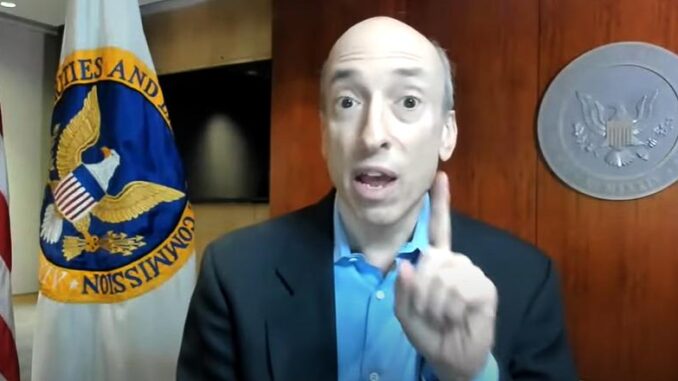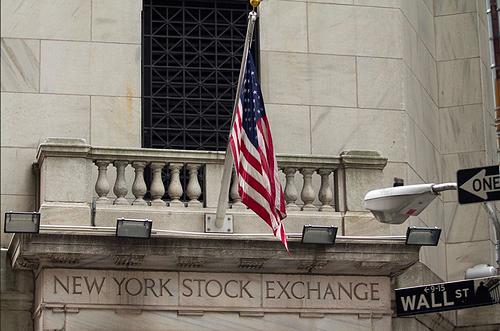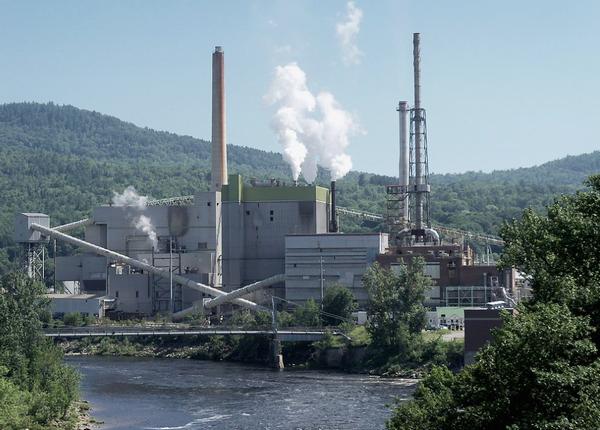
WASHINGTON, DC, August 28, 2023 (ENS) – No doubt about it – the Earth is getting hotter. In the scorching month of July, when temperatures soared above any other month in the 143-year global temperature record, NASA Administrator Bill Nelson verified it, saying, “NASA data confirms what billions around the world literally felt – temperatures in July 2023 made it the hottest month on record.”
“In every corner of the country, Americans are right now experiencing firsthand the effects of the climate crisis,” Nelson said. “The science is clear. We must act now to protect our communities and planet; it’s the only one we have.”
Kate Calvin, NASA’s chief scientist and climate adviser, told NPR in July, “So, 2022 is about two degrees Fahrenheit warmer than the late 19th century average. And what we know from science is that warming is going to continue. How much warmer it gets depends on actions taken and how much emissions there are in the future.”
Actions long urged by environmental activists and scientific institutions alike to require corporate disclosures of carbon emissions and limits to those emissions are now, at long last, being taken.
Following similar efforts by the European Union and the United Kingdom, on March 21, 2022 the U.S. Securities and Exchange Commission proposed a rule that would require publicly-traded companies to report their greenhouse gas emissions.
Announcing the proposal, SEC Chair Gary Gensler said, “Investors representing literally tens of trillions of dollars support climate-related disclosures because they recognize that climate risks can pose significant financial risks to companies, and investors need reliable information about climate risks to make informed investment decisions.”
Gensler said that companies and investors alike would benefit from the “clear rules of the road,” that the SEC has proposed. “Our core bargain from the 1930s is that investors get to decide which risks to take, as long as public companies provide full and fair disclosure and are truthful in those disclosures.”
“I believe the SEC has a role to play when there’s this level of demand for consistent and comparable information that may affect financial performance. Today’s proposal thus is driven by the needs of investors and issuers,” said the SEC chairman.
The proposed rule changes would require SEC registrants to disclose information about:
1 – the registrant’s governance of climate-related risks and relevant risk management processes;
2 – how any climate-related risks identified by the registrant have had or are likely to have a material impact on its business and consolidated financial statements, which may manifest over the short-, medium-, or long-term;
3 – how any identified climate-related risks have affected or are likely to affect the registrant’s strategy, business model, and outlook; and
4 – the impact of climate-related events, such as severe weather events and other natural conditions, and transition activities on the line items of a registrant’s consolidated financial statements, as well as on the financial estimates and assumptions used in the financial statements.

For SEC registrants that already conduct scenario analysis, have developed transition plans, or publicly set climate-related targets or goals, the proposed amendments to the SEC rules would require certain disclosures to enable investors to understand those aspects of the registrants’ climate risk management.
Under the federal securities laws, every offer and sale of securities, even if to just one person, must be either registered with the SEC or conducted under an exemption. The SEC staff reviews these registration statements to see if the SEC’s disclosure rules are satisfied.
The proposed rules also would require a registrant to disclose information about its direct greenhouse gas emissions (Scope 1) and also disclose indirect emissions from purchased electricity or other forms of energy (Scope 2).
In addition, a registrant would be required to disclose greenhouse gas emissions from upstream and downstream activities in its value chain (Scope 3), if material or if the registrant has set an emissions target or goal that includes Scope 3 emissions.
The proposed rules would provide a safe harbor for liability from Scope 3 emissions disclosure and an exemption from the Scope 3 emissions disclosure requirement for smaller reporting companies.
These proposals for greenhouse gas emissions disclosures would provide investors with “decision-useful information to assess a registrant’s exposure to, and management of, climate-related risks, and in particular transition risks,” the SEC says.
The SEC says that the proposed disclosures are similar to those that many companies already provide based on broadly accepted disclosure frameworks, such as the Task Force on Climate-Related Financial Disclosures and the Greenhouse Gas Protocol.
Majority Public Opinion Supports Disclosure
The reactions to the SEC’s proposal from the regulated community have been mainly positive.
Michael Bloomberg, founder of Bloomberg News, Bloomberg Philanthropies, and three-term Mayor of New York City, also serves as the UN Secretary-General’s Special Envoy on Climate Ambition and Solutions. He is supportive of the the SEC’s proposed rules to enhance and standardize climate-related disclosures.
“The disclosure of climate risks is one of the most important tools we have to mitigate the worst outcomes of climate change, and SEC Chairman Gensler and his team deserve credit for taking this step – and helping position the U.S. to lead the way forward,” Bloomberg said.

“By building on the growing number of nations that have adopted the widely-accepted disclosure framework from the Task Force on Climate-related Financial Disclosures, the SEC is helping to ensure global investors have the consistent, comparable information they need to make informed financial decisions, reduce risks to the economy and accelerate the transition to clean energy and net-zero emissions,” he said.
Climate policy pioneer Michael Greenstone and his colleagues draw on one of the largest global datasets, covering some 15,000 public companies, and offer an estimate of what a widespread emissions reporting mandate could uncover about the extent of climate damages caused by corporate greenhouse gas emissions.
They estimate that average corporate carbon damages, a measure of the total monetary value of climate damages caused by each company’s greenhouse gas emissions, are high, but vary greatly across firms within an industry, across industries, and across countries.
The top four industries account for 89 percent of the total global corporate carbon damages, with the largest carbon damages occurring in the energy-intensive industries, including utilities, materials, energy, transportation and food, beverage, and tobacco.
They also found that variation in carbon damages across countries is also substantial, and influenced by differences in industrial composition.
“Revealing corporate carbon damages would start a public dialogue about the contribution of corporate activities to the climate problem, which in turn could spur policies and unleash market forces,” write Greenstone and colleagues in an August 24 article for the journal “Science,” titled “Mandatory disclosure would reveal corporate carbon damages.”
“Put plainly, it is difficult to imagine a successful approach to the climate challenge that does not have widespread mandatory disclosure at its foundation,” they write.

As chief economist for President Barack Obama’s Council of Economic Advisers, Greenstone led the development of the U.S. government’s social cost of carbon policy. A member of the Department of Economics at the University of Chicago, he is a co-director of the Climate Impact Lab, https://impactlab.org/ a nonprofit at the university that measures and communicates the impacts of climate change on people to empower effective decision-making.
Further, Greenstone developed the Air Quality Life Index™ that converts air pollution concentrations into their impact on life expectancy; he also co-founded Climate Vault, a nonprofit that uses markets to allow institutions and people to reduce their carbon footprint. Greenstone also works with the National Bureau of Economic Research in Cambridge, Massachusetts.
All this work and the work of many other organizations and corporations is directed at managing burgeoning climate change.
The heat on Earth is spiraling past previous records. This past July, parts of South America, North Africa, North America, and the Antarctic Peninsula were especially hot, experiencing temperature increases around 7.2° Fahrenheit (4° Celsius) above average, according to NASA data.
Overall, extreme heat this summer put tens of millions of people under heat warnings and was linked to hundreds of heat-related illnesses and deaths.
The record-breaking July continues a long-term trend of human-driven warming driven primarily by greenhouse gas emissions that has become evident over the past four decades. According to NASA data, the five hottest Julys since 1880 have all happened in the past five years.
Gavin Schmidt, director of NASA’s Goddard Institute for Space Studies in New York, says, “The science is clear this isn’t normal. Alarming warming around the world is driven primarily by human-caused greenhouse gas emissions. And that rise in average temperatures is fueling dangerous extreme heat that people are experiencing here at home and worldwide.”
House Republicans Try to Kill ESG Investing
Not everyone is behind the SEC’s climate disclosure proposal. A group of six Republican Congressmen wrote in an October 2022 letter to SEC Chairman Gensler that the SEC was proposing too many rules and that there was “a deep level of dysfunction within the SEC” that would require investigations by House Republicans, who hold a four seat majority in the lawmaking body.
A Republican-led bill that would have banned the consideration of environmental, social or governance, ESG, issues in investment decisions was passed by Congress, but it was vetoed by President Joe Biden – his first veto.
In March 2023, the House failed to override Biden’s first veto and the consideration of environmental, social or governance, ESG, issues in investment decisions is still legal. The override failed on a 219-200 vote along party lines as most Democrats opposed it. But House Republicans have not given up their opposition to ESG investment decisions, particularly those related to climate change.
In July as temperatures hit record levels in Washington, DC, Republicans on the House Financial Services Committee introduced a bill that would require the SEC to stop making rules about corporate disclosures of greenhouse gas emissions and other environmental, social, and corporate governance issues.
Committee member Congressman Ralph Norman, a South Carolina Republican, said, “ESG is an evil pollutant that must be eradicated from corporations and businesses. Ultimately, the Businesses Over Activists Act would preserve the First Amendment rights of corporations and impede economic damages stemming from the misuse of resources delegated to the management of these politized proposals. The SEC should not and does not have the authority to compel companies to include ESG proposals.”
But the latest Republican bill conflicts with a rule issued by the U.S. Department of Labor last December that allows investment plan fiduciaries to consider climate change and other environmental, social, and governance factors in making investment decisions. The conflict has not yet been resolved.
Manufacturers’ Association Stands Opposed
In May, the National Association of Manufacturers, NAM, representing nearly 14,000 U.S. manufacturers in every industrial sector, filed a motion to intervene in National Center for Public Policy Research v. SEC, a case about the Securities and Exchange Commission’s authority to dictate the content of public company proxy ballots and the topics on which shareholders are required to cast votes.
Granted intervenor status by the 5th Circuit Court of Appeals in May, the NAM will argue that the SEC’s rules requiring companies to include activist proposals on the proxy ballot violate federal securities law and the First Amendment to the U.S. Constitution.

NAM Chief Legal Officer Linda Kelly said, “Manufacturers are facing an onslaught of activists seeking to hijack the proxy ballot to advance narrow political agendas, and the SEC has become a willing partner in the effort. The corporate proxy ballot is not the appropriate venue for policy decisions better made by America’s elected representatives, and manufacturers are regularly caught in the middle as activists on the left and the right bring fights from the political arena into the boardroom.”
One of the industries affected by this debate is the pulp and paper industry.
“U.S. pulp and paper manufacturers recognize the need to address the challenges of our changing climate and share the administration’s goal to secure a more sustainable future,” said American Forest & Paper Association President and CEO Heidi Brock. “This can only be achieved by working with, not against, manufacturers to craft achievable and balanced regulations that address environmental challenges without threatening manufacturing jobs.”
U.S. manufacturers want Congress to know that they are not opposed to actions that can control climate change.
“To be clear,” Chris Netram, Managing Vice President, Policy with the National Association of Manufacturers testified to the U.S. House of Representatives Committee on Financial Services
Subcommittee on Capital Markets on July 13, “manufacturers believe strongly in the importance of combatting climate change, ensuring sustainable business operations and enhancing diversity, equity and inclusion in the workforce.”
As an example, he told of a recent survey of senior manufacturing executives conducted by the Manufacturing Leadership Council, the NAM’s digital transformation division, which found that 90 percent of respondents believed that manufacturing has a special responsibility to society to become more sustainable. And companies are putting this belief into action. Manufacturing in the U.S. is cleaner and more sustainable today than at any other time in history due to a revolution in how manufacturers produce, use and recycle energy.
Looking forward, 90 percent of manufacturers are focused on improving energy efficiency and reducing energy use, 85 percent have a company-wide strategy to address sustainability or have embedded sustainability into their business practices and 57 percent either have or are developing a net zero greenhouse gas emissions-reduction goal.
This year’s extreme heatwaves, floods, droughts, storms and wildfires are doing what decades of political efforts could not complete – they are making some of the climate deniers into realists.
The Securities and Exchange Commission’s climate disclosure proposal is open for public comment. to weigh in, click here.
Featured image: Gary Gensler is a former Goldman Sachs investment banker now serving as the chair of the U.S. Securities and Exchange Commission. April 12, 2022 (Screengrab from video briefing on SEC’s climate disclosure proposal)



